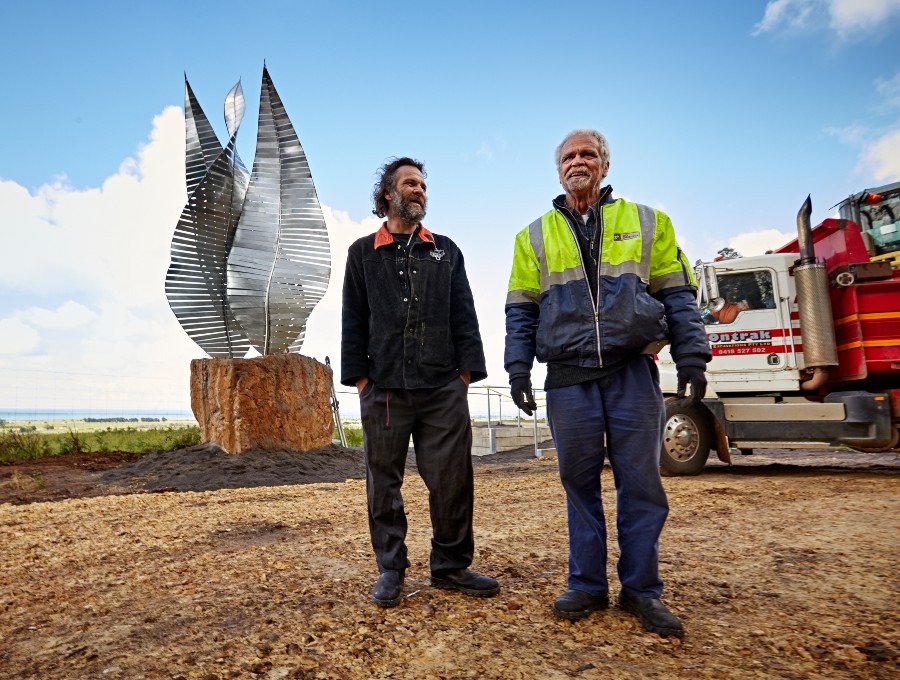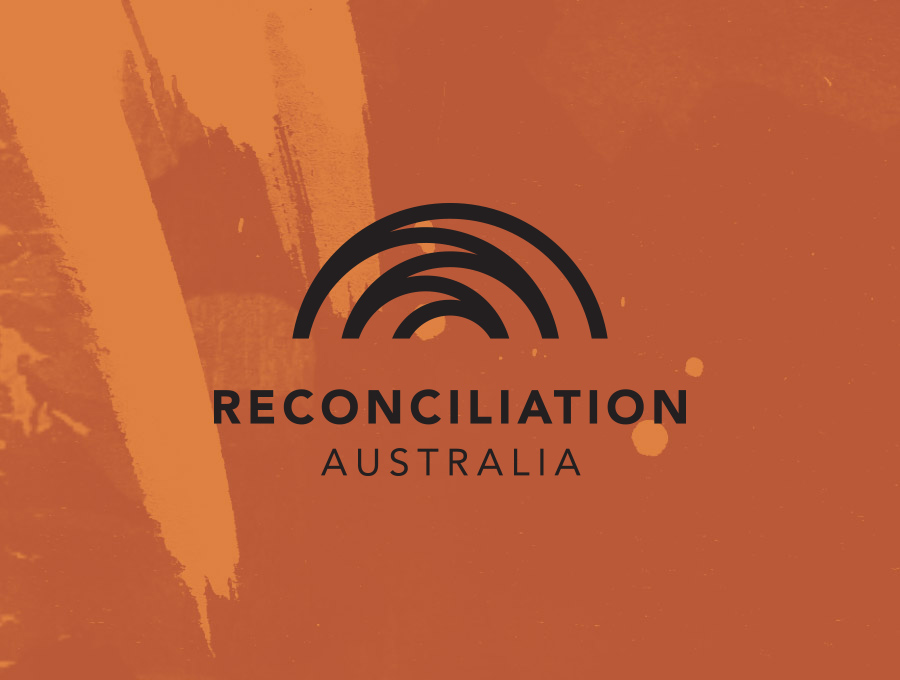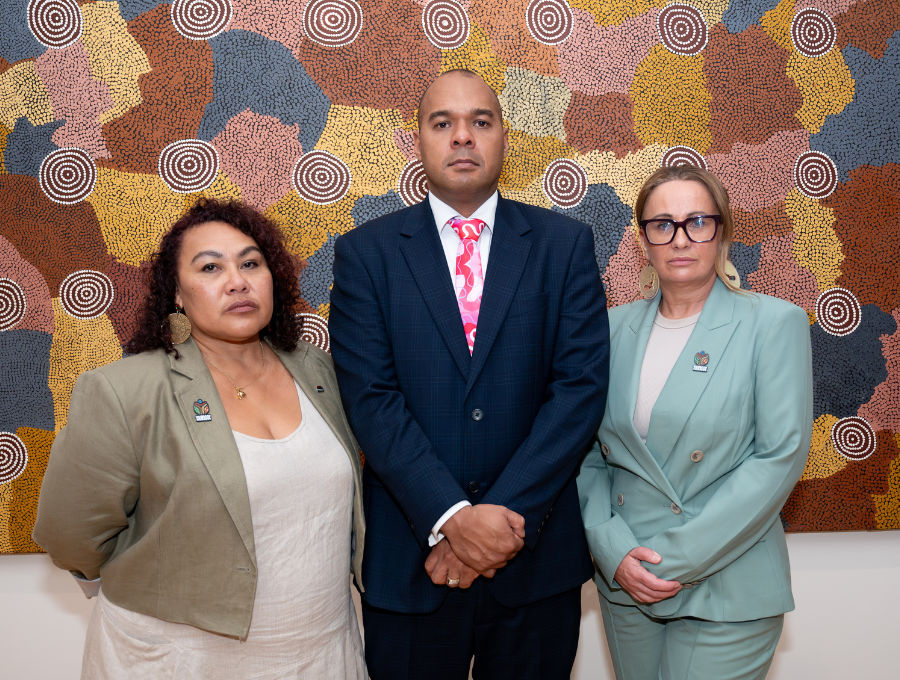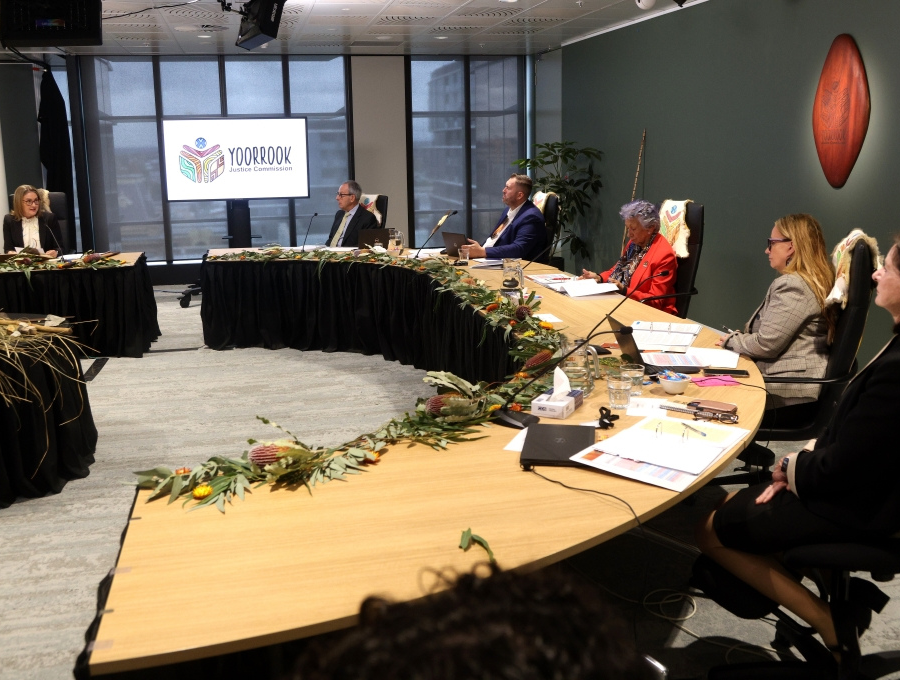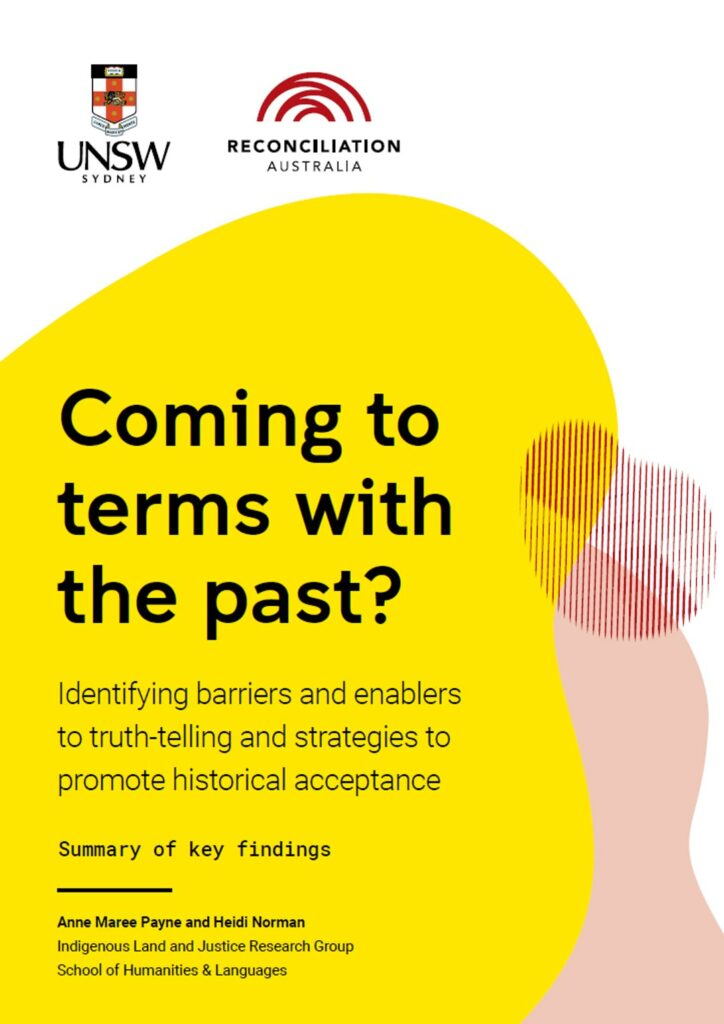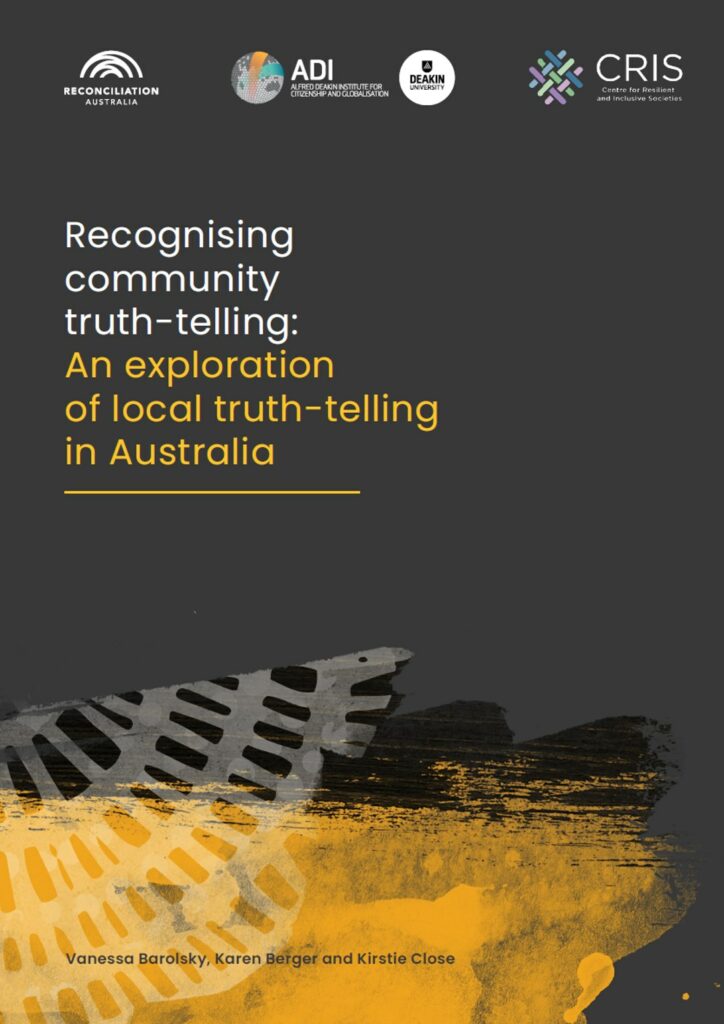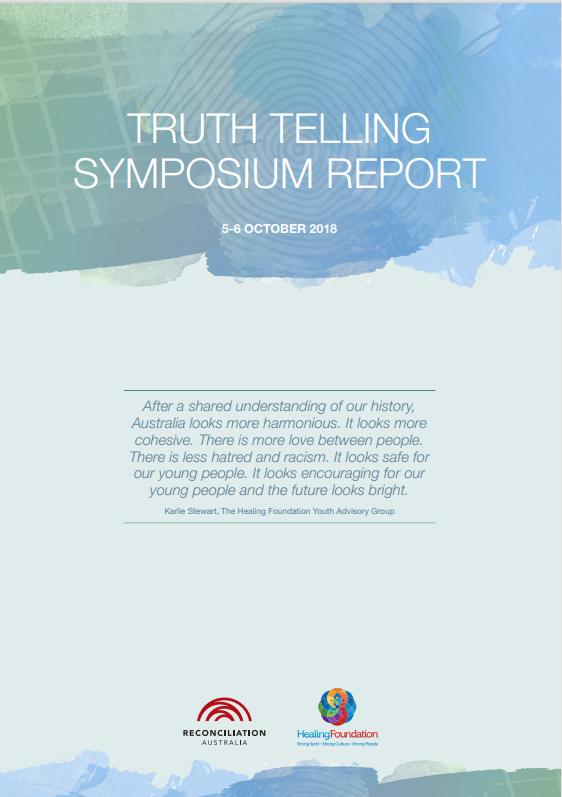Truth-telling enables a fuller and more accurate account of Australia’s history to recognise the strength and contribution of Aboriginal and Torres Strait Islander peoples. It acknowledges the historical silencing of injustices and ongoing impacts of colonisation on First Nations people. Truth-telling is fundamental to advancing reconciliation.
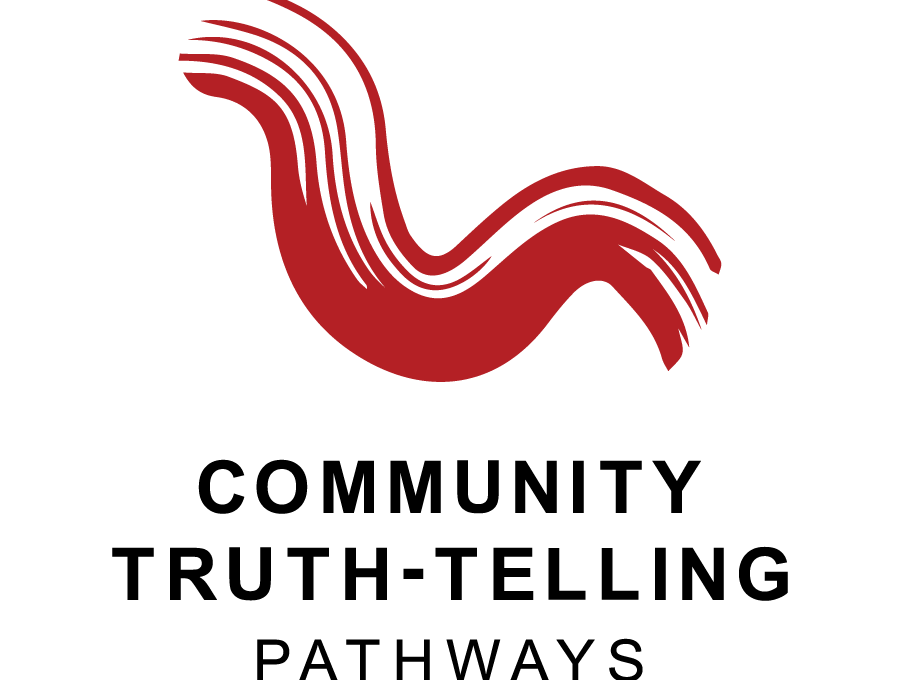
How Reconciliation Australia is supporting new and continuing truth-telling journeys.
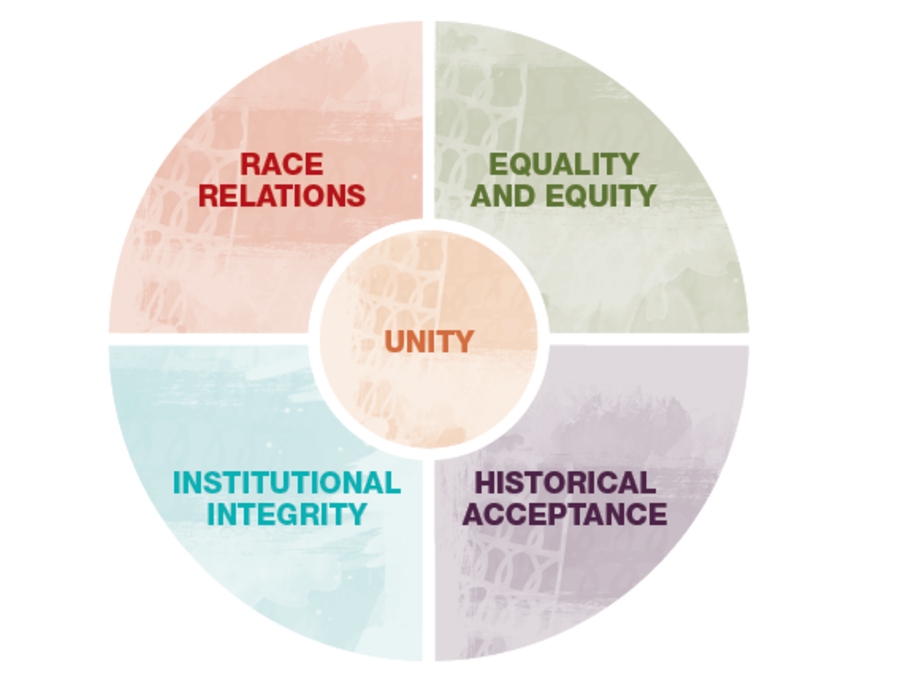
Truth-telling is at the heart of creating a just and reconciled Australia.
About truth-telling
Truth-telling covers a range of activities that engage with a fuller account of Australia’s history and its ongoing impact on Aboriginal and Torres Strait Islander peoples.
To be meaningful, truth-telling must aim to achieve change at a personal, local, institutional or national level. It can cover processes involving official apologies, truth and reconciliation or other inquiries and commissions, memorials, ceremonies and public art.
While truth-telling will deal with colonial conflict, massacres and dispossession, it also promotes the strength, contributions and resilience of Aboriginal and Torres Strait Islander peoples and cultures.
State and territory truth-telling
Victoria
- The Yoorrook Justice Commission in Victoria is the most comprehensive example of current state-level truth-telling.
- Since 2020, Yoorrook has held several hearings to gather evidence on injustices faced by First Peoples.
- This history-making commission will conclude its inquiry in June 2025 and release a final reform report at this time.
Queensland
- The Truth-telling and Healing Inquiry began in July 2024 and held its first hearings in September.
- Following the state election the same year, the newly elected Queensland Government ended the ‘Path to Treaty’ process by repealing the Path to Treaty Act 2023, of which this inquiry was the first step. As a result, the inquiry ceased operations. Read the Truth-telling and Healing Enquiry’s statement.
Northern Territory
- The NT Treaty Commission released its Towards Truth Telling report in 2021.
- The report provided suggestions for an evidence-based model that will accompany and augment the treaty process.
- The NT Government is currently running a Truth, Healing and Reconciliation Grant program.
Tasmania
- Engagements with the Aboriginal community in Tasmania led to the 2021 report, Pathway to Truth-Telling and Treaty.
- An Aboriginal Advisory Group has been established and they will deliver their final report to the Tasmanian Government in mid-2025.
Community led truth-telling
More local communities are working together to mark previously untold and unrecognised parts of their histories. This has resulted not only in an increase in researching and documenting of wars and massacres, but also in recognising Aboriginal and Torres Strait Islander sovereignty, contributions and resilience, and actively taking steps toward redress and healing.
Read more about place based truth telling in this collaborative study between Reconciliation Australia and Deakin University.
National truth-telling
Reports from the Royal Commission into Aboriginal Deaths in Custody and the Bringing Them Home report, are landmark examples of national truth-telling.
The Uluru Statement from the Heart with its call for Voice, Treaty and Truth captures Aboriginal and Torres Strait Islander aspirations for ‘a fair and truthful relationship with the people of Australia based on justice and self-determination.’
Truth-telling and reconciliation
Reconciliation is about strengthening relationships between Aboriginal and Torres Strait Islander and non-Indigenous peoples, for the benefit of us all. Truth-telling has always been at the heart of reconciliation and will continue to be a keystone of our work to create a more just and equitable Australia.
As the Australian Declaration Towards Reconciliation released in 2000 made clear:
Our nation must have the courage to own the truth, to heal the wounds of its past so that we can move on together at peace with ourselves.
In 2018, Reconciliation Australia and The Healing Foundation collaborated on a Truth-telling Symposium. The symposium explored the importance of truth-telling, the truths that need to be told, different truth-telling practices that might be applicable to Australia, and guiding principles for future truth-telling processes. Read more in the Symposium’s final report.
Our work of reconciliation is based on and measured by the five dimensions of reconciliation: Race Relations, Equality and Equity, Institutional Integrity, Unity and Historical Acceptance.
While truth-telling is essential to each of the five dimensions, it is expressly called for in the dimension of Historical Acceptance. Achieving Historical Acceptance requires that all Australians understand and accept the wrongs of the past and their impact on Aboriginal and Torres Strait Islander peoples. Its goal is widespread acceptance of our nation’s history through truth, justice and healing.
Our relationship cannot function without a shared and honest understanding of where we have come from together.
Community Truth-telling Pathways
Reconciliation Australia’s new Community Truth-telling Pathways program aims to support communities to begin or continue their truth-telling journey. The program’s work is community-led, place-based, strengths focused and action oriented.


